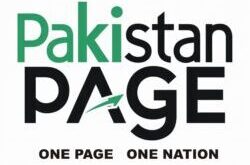CPDI observes International Anti-Corruption Day
ISLAMABAD :The Centre for Peace and Development Initiatives (CPDI), a non-profit organization, observed Anti-Corruption Day on Monday, reaffirming its commitment to strengthening mechanisms for corruption prevention.
Observed annually on December 9, this year’s IACD theme, “Uniting with Youth Against Corruption: Shaping Tomorrow’s Integrity,” highlights the critical role of youth in fighting corruption and fostering integrity. The day also marks the 2003 adoption of the United Nations Convention Against Corruption (UNCAC) and underscores corruption as a key barrier to development, democracy, social justice, and good governance.
CPDI, committed to transparency, good governance, strong local governments, and the right to information laws, is advocating for a corruption-free governance system in Pakistan on International Anti-Corruption Day (IACD).
Pakistan’s cuisine
With 190 countries, including Pakistan, committed to the UNCAC, there is a global consensus on the need for effective measures against corruption said a press release.
On this day, Mukhtar Ahmad Ali Executive Director CPDI remarked that as the world celebrates International Anti-corruption day, it is important to reaffirm our commitment to strengthen official mechanisms to prevent and counter corruption through right to information laws, transparent budgets and procurements, whistleblowers’ protection, political finance reforms, effective investigation and prosecution of corruption cases, and robust cooperation among states to recover and return to victims the proceeds of corrupt practices.
He added that, in Pakistan, the fight against corruption has seen significant challenges, as Pakistan continues to rank very low on the corruption perception index.
According to Transparency International’s Corruption Perceptions Index (CPI), Pakistan ranked at 140th in 2022 and 133rd in 2023, with a CPI score of 27 to 29 respectively.
In comparison, several other South Asian countries show a better ranking: India ranks 85 with a score of 39, Nepal ranks 107 with a score of 36, and Bhutan ranks 45 with a score of 62.
Corruption is a major factor that adversely affects peoples access to public services and alienates them from the government organizations.
To combat corruption, Pakistan has enacted several laws including the provincial anti-corruptions laws and the National Accountability Ordinance (NAO) 1999.
Pakistan’s cuisine
Under these laws, the key institutions with the mandate to investigate and prosecute corruption cases include the provincial anti-corruption establishments and the National Accountability Bureau (NAB).
Over the last decade, Pakistan has also enacted right to information laws, which have helped, to some extent, in improving transparency and peoples’ access to information in official matters.
Moreover, Pakistan has signed and ratified the UNCAC 2003, which sets standards and provides a framework for cooperation among members states for preventing and combating corruption. It is, however, worrying that successive governments in Pakistan have not been successful in recovering and returning proceeds of corrupt practices from abroad to the victim communities.
As we observe International Anti-Corruption Day, it is crucial to recognize that eradicating corruption is a collective responsibility. While Pakistan has made progress in terms of enacting relevant laws, it continues to face major challenges in ensuring transparent, effective and non-partisan implementation of laws to prevent, investigate and prosecute cases of corruption. It is, therefore, imperative that Pakistan strengthens its governance mechanisms, and enhances the capacity of relevant institutions to effectively investigate and prosecute corruption cases.
A strong enforcement framework is essential to discourage corrupt practices in public and private sectors to curb crimes and build a just society. Promoting a culture of accountability, where individuals can question public officials, is vital.
It must also be recognized that free and independent media and civil society organizations play a key role in exposing corruption and highlighting weaknesses in the enforcement of anti-corruption laws. By fostering ethical values and public accountability, we can work together towards a corruption-free society built on transparency and integrity.

